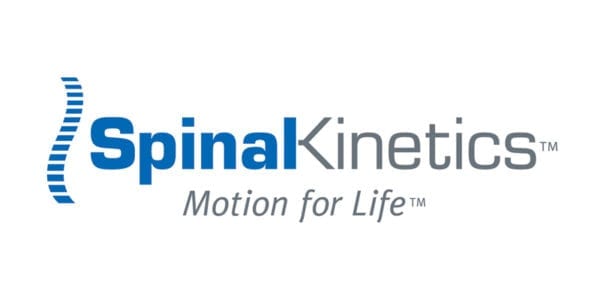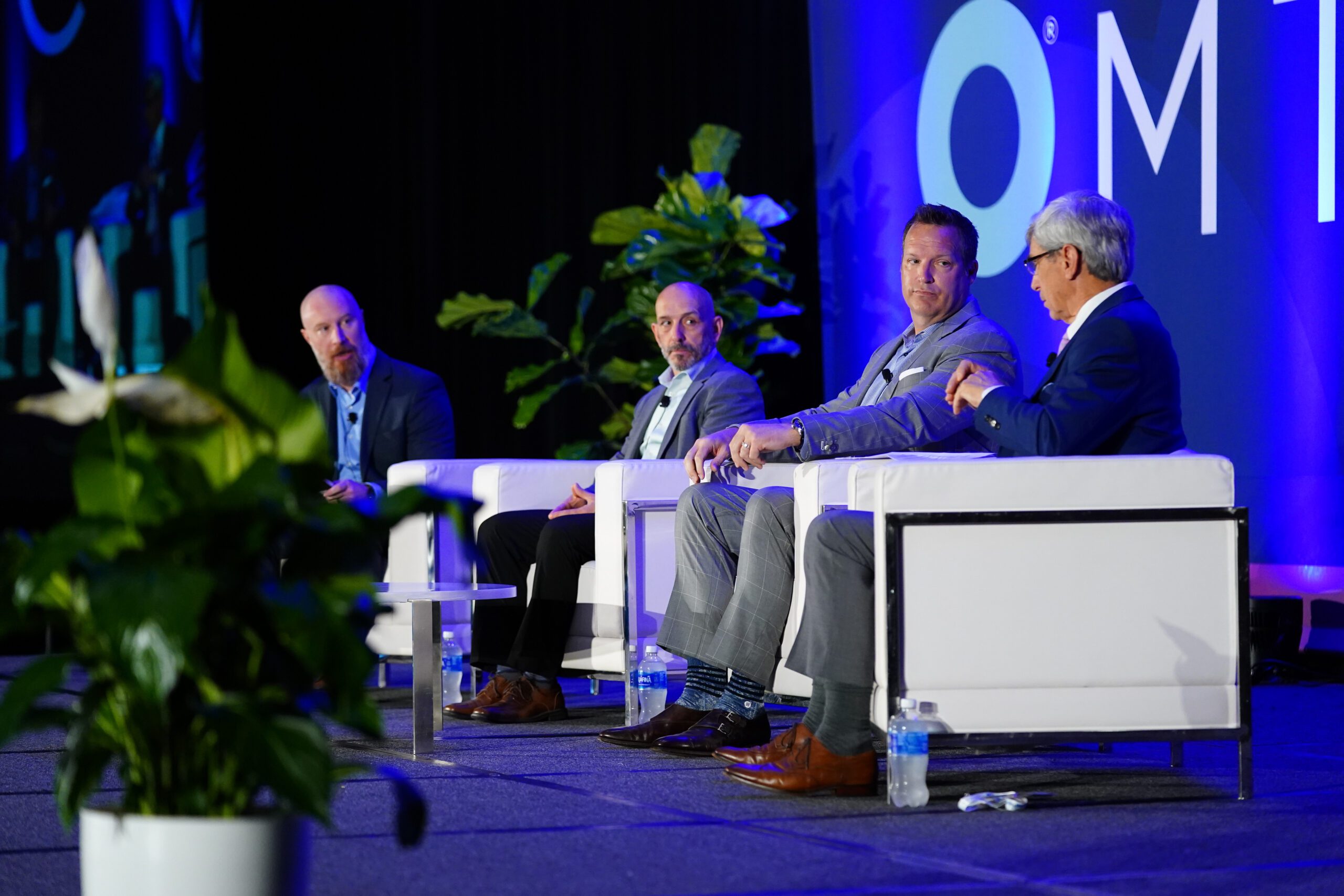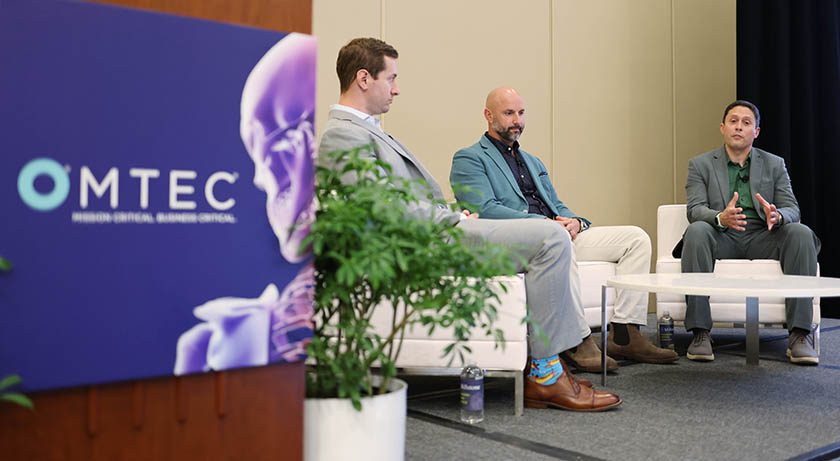

 Copy to clipboard
Copy to clipboard 
The startup life suits Tom Afzal. The small team. The hands-on work. The challenge and excitement of building a new company and a new technology. The risk. The medtech entrepreneur has been involved in six startups, including Spinal Kinetics, which he founded and sold to Orthofix for $105 million in 2018.
Many of the lessons that Mr. Afzal has applied throughout his career he learned while working at American Hospital Supply Corporation—one of the largest medical device companies in the ‘70s-‘80s—his first professional position after college. As part of a management path program, Mr. Afzal was required to work in many functional areas of the company—sales, marketing, finance, production, R&D, quality, etc.
“They threw everything at us, and we learned so much,” Mr. Afzal said. “As part of the program, they allowed us to make a lot of decisions and take some risks. Everybody got a chance to make a mistake. You just could never make the same mistake twice. But they wanted you to take risks and not be afraid of doing so. The corporate culture was based on doing and merit, and I learned the majority of the principles that shaped my career and philosophy while working there.”
The experience cemented his personal philosophy: work hard, play hard, enjoy what you do.
I sat down with Mr. Afzal and asked him to reflect on what led to his success working in startups. Here are three of his tips.
It’s All About the Team
The right people are the key to any successful company, said Mr. Afzal. As a leader, you need to be disciplined in your hiring and onboarding, and you need to create a culture that motivates and incentivizes employees.
“You have to get the right people and then let them go to it,” Mr. Afzal said. “When you trust people, you say, ‘I trust you. I believe in you. I’m waiting for you to make it happen, and I know you can do it.’ ”
An optimized team affords your company speed and innovation, he said, noting that it took Spinal Kinetics 16 months from its funding to implanting its first artificial disc in a human.
Creating a culture of motivation and productivity means you also need to incentivize your team well, said Mr. Afzal. He stands firmly on recognizing employees for their contributions, allowing them the freedom to make decisions and also to make mistakes. It’s all part of teambuilding.
Additionally, he believes in paying employees in the higher percentiles, providing premium healthcare benefits at little cost to employees, extended paid vacation at the holidays, and recognition for their contributions. For example, if an employee found a way to save the company money, that employee received 15% of the savings the first year as a bonus. These factors contributed to Spinal Kinetics having very little employee attrition over the 16 years as a private company.
“Little things keep the team motivated,” he said. “It’s all about the team. I really focus on personally getting to know the team and building the team.”
See Your Product in Action
As a leader, it’s imperative that you fully understand your company’s technology and products, said Mr. Afzal. It may seem like a no-brainer, but he said he’s seen other products in the industry fail due to what he perceived was leadership not understanding the product and its potential impact on the market.
Mr. Afzal remembers the first 15 surgeries performed with Spinal Kinetics’ M6 artificial disc. He was in the operating room for every one of these cases. His engineering team and clinical team were watching, and they met immediately after each surgery with the surgeons to discuss the procedure and get feedback. How could the technique be improved? How could the implant and instruments be improved? For two years, members of Spinal Kinetics’ team were in almost every surgery, relaying similar information afterward. This led to product line expansion and four iterations of instruments in that time period, as well as valuable insight into market strategy and surgeon training.
As the company started to commercialize internationally, it focused its efforts on market development to ensure success. It identified and partnered with distributors in each market. Together, they developed a strategic plan specific to each market and actively worked together to implement the plan. Spinal Kinetics eventually expanded to over 20 countries and became the leading market share company for each market, said Mr. Afzal. Spinal Kinetics received FDA approval for the M6 cervical disc in February 2019. He firmly believes the M6 will be just as successful in the U.S.
Look to Younger Generations
Over the years, Mr. Afzal has found success in leveraging the skills and interests of younger people.
In seeking to attract bright engineers and business employees, Spinal Kinetics provided an internship program that allowed the company to remain productive, test a pool of future new hires and attract more young professionals to the company. The company actively recruited university students, and the children of many employees became interns as part of the program. A number of the interns returned after graduation to become full-time employees.
The advice Mr. Afzal gives young professionals is the same in which he lives by, “Just pick up something you will be passionate about and go—enjoy doing it.”
Carolyn LaWell is ORTHOWORLD’s Chief Content Officer.
The startup life suits Tom Afzal. The small team. The hands-on work. The challenge and excitement of building a new company and a new technology. The risk. The medtech entrepreneur has been involved in six startups, including Spinal Kinetics, which he founded and sold to Orthofix for $105 million in 2018.
Many of the lessons that Mr. Afzal has...
The startup life suits Tom Afzal. The small team. The hands-on work. The challenge and excitement of building a new company and a new technology. The risk. The medtech entrepreneur has been involved in six startups, including Spinal Kinetics, which he founded and sold to Orthofix for $105 million in 2018.
Many of the lessons that Mr. Afzal has applied throughout his career he learned while working at American Hospital Supply Corporation—one of the largest medical device companies in the ‘70s-‘80s—his first professional position after college. As part of a management path program, Mr. Afzal was required to work in many functional areas of the company—sales, marketing, finance, production, R&D, quality, etc.
“They threw everything at us, and we learned so much,” Mr. Afzal said. “As part of the program, they allowed us to make a lot of decisions and take some risks. Everybody got a chance to make a mistake. You just could never make the same mistake twice. But they wanted you to take risks and not be afraid of doing so. The corporate culture was based on doing and merit, and I learned the majority of the principles that shaped my career and philosophy while working there.”
The experience cemented his personal philosophy: work hard, play hard, enjoy what you do.
I sat down with Mr. Afzal and asked him to reflect on what led to his success working in startups. Here are three of his tips.
It’s All About the Team
The right people are the key to any successful company, said Mr. Afzal. As a leader, you need to be disciplined in your hiring and onboarding, and you need to create a culture that motivates and incentivizes employees.
“You have to get the right people and then let them go to it,” Mr. Afzal said. “When you trust people, you say, ‘I trust you. I believe in you. I’m waiting for you to make it happen, and I know you can do it.’ ”
An optimized team affords your company speed and innovation, he said, noting that it took Spinal Kinetics 16 months from its funding to implanting its first artificial disc in a human.
Creating a culture of motivation and productivity means you also need to incentivize your team well, said Mr. Afzal. He stands firmly on recognizing employees for their contributions, allowing them the freedom to make decisions and also to make mistakes. It’s all part of teambuilding.
Additionally, he believes in paying employees in the higher percentiles, providing premium healthcare benefits at little cost to employees, extended paid vacation at the holidays, and recognition for their contributions. For example, if an employee found a way to save the company money, that employee received 15% of the savings the first year as a bonus. These factors contributed to Spinal Kinetics having very little employee attrition over the 16 years as a private company.
“Little things keep the team motivated,” he said. “It’s all about the team. I really focus on personally getting to know the team and building the team.”
See Your Product in Action
As a leader, it’s imperative that you fully understand your company’s technology and products, said Mr. Afzal. It may seem like a no-brainer, but he said he’s seen other products in the industry fail due to what he perceived was leadership not understanding the product and its potential impact on the market.
Mr. Afzal remembers the first 15 surgeries performed with Spinal Kinetics’ M6 artificial disc. He was in the operating room for every one of these cases. His engineering team and clinical team were watching, and they met immediately after each surgery with the surgeons to discuss the procedure and get feedback. How could the technique be improved? How could the implant and instruments be improved? For two years, members of Spinal Kinetics’ team were in almost every surgery, relaying similar information afterward. This led to product line expansion and four iterations of instruments in that time period, as well as valuable insight into market strategy and surgeon training.
As the company started to commercialize internationally, it focused its efforts on market development to ensure success. It identified and partnered with distributors in each market. Together, they developed a strategic plan specific to each market and actively worked together to implement the plan. Spinal Kinetics eventually expanded to over 20 countries and became the leading market share company for each market, said Mr. Afzal. Spinal Kinetics received FDA approval for the M6 cervical disc in February 2019. He firmly believes the M6 will be just as successful in the U.S.
Look to Younger Generations
Over the years, Mr. Afzal has found success in leveraging the skills and interests of younger people.
In seeking to attract bright engineers and business employees, Spinal Kinetics provided an internship program that allowed the company to remain productive, test a pool of future new hires and attract more young professionals to the company. The company actively recruited university students, and the children of many employees became interns as part of the program. A number of the interns returned after graduation to become full-time employees.
The advice Mr. Afzal gives young professionals is the same in which he lives by, “Just pick up something you will be passionate about and go—enjoy doing it.”
Carolyn LaWell is ORTHOWORLD’s Chief Content Officer.

You are out of free articles for this month
Subscribe as a Guest for $0 and unlock a total of 5 articles per month.
You are out of five articles for this month
Subscribe as an Executive Member for access to unlimited articles, THE ORTHOPAEDIC INDUSTRY ANNUAL REPORT and more.
CL
Carolyn LaWell is ORTHOWORLD's Chief Content Officer. She joined ORTHOWORLD in 2012 to oversee its editorial and industry education. She previously served in editor roles at B2B magazines and newspapers.








